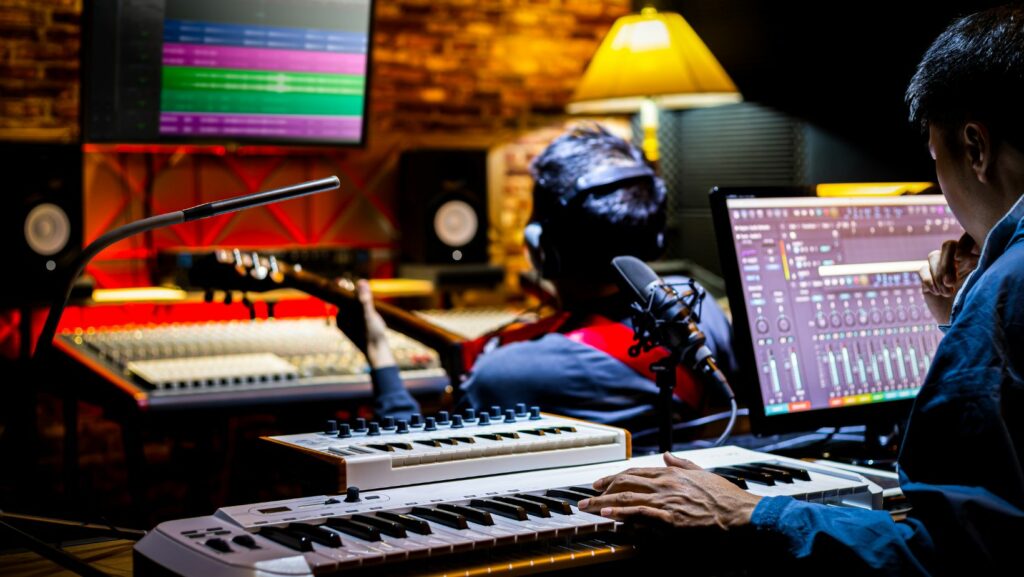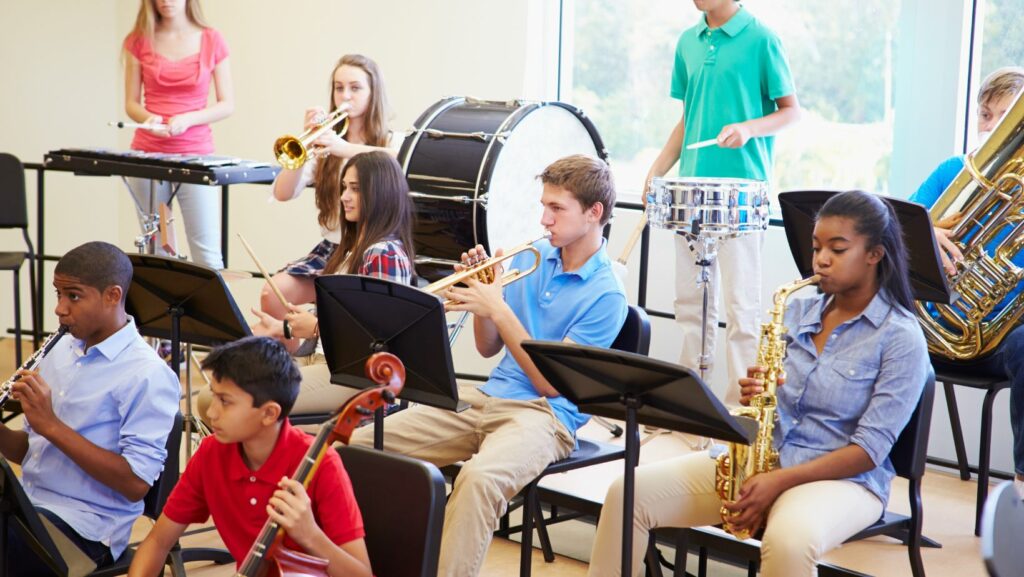In the vast, vibrant world of music, there’s a unique role for everyone. For those who find their calling behind the scenes, shaping the soundscapes that move us, a music production major might be the perfect fit. This exciting field combines creativity with technical skills, offering a dynamic career path for aspiring music professionals.
Music Production Major
A major in music production offers a rich, practical curriculum. It allows students to immerse themselves in the art of sound shaping, introducing them to various aspects of the music realm. Let’s delve into the core aspects of the music production major.
Key Courses and Curriculum
 A music production major involves courses in a variety of areas, such as audio engineering, music theory, digital music composition, acoustics, and studio production. Students learn the mechanics of sound, studying the functional aspects of studio recording hardware, and software.
A music production major involves courses in a variety of areas, such as audio engineering, music theory, digital music composition, acoustics, and studio production. Students learn the mechanics of sound, studying the functional aspects of studio recording hardware, and software.
In course of audio engineering, students learn the nuances of sound mixing, editing, and mastering. For instance, the music theory course endeavors to introduce students to the foundation of music, its structure, rhythm, and melody.
Digital music composition, on the other hand, focuses on creating music using digital platforms. It teaches students the usage of electronic instruments, synth programming, and digital audio workstations like Ableton Live or Pro Tools.
Acoustics give students a practical understanding of sound phenomena, including sound propagation and perception. The core of studio production classes involves teaching students to manage a recording session, work with artists, and understand the business side of studio management.
Skills Developed During the Program
A music production major helps students develop a multitude of skills essential to thrive in the music industry. Among these skills are technical expertise, critical listening, creativity, and team collaboration.
 Technical proficiency involves understanding and operating mixing consoles, microphones, audio interfaces, and digital audio workstations. Critical listening, a cornerstone for any music producer, helps in discerning minute details in a musical piece and assessing the quality of sound reproduction.
Technical proficiency involves understanding and operating mixing consoles, microphones, audio interfaces, and digital audio workstations. Critical listening, a cornerstone for any music producer, helps in discerning minute details in a musical piece and assessing the quality of sound reproduction.
Creativity is paramount in a field like music. As part of the program, students learn to experiment with sound and create compelling audio. Team collaboration, another vital skill, teaches students the art of communication and collaboration, both of which are crucial in a studio setting. For example, a producer must communicate effectively with artists, mastering engineers, and record labels, ensuring the final product aligns with the collective vision.
A music production major not only equips students with the technical know-how but also fosters creativity, helping aspiring audio professionals carve out their unique soundscapes.
Career Paths for Music Production Majors
The study of music production major can lead to a wealth of opportunities. Each path provides different experiences and requires unique skills honed from the coursework and lessons of a music production major.
Working in Music Studios
Students who complete a music production major commonly find their way into recording studios. In these creative hubs, they apply their knowledge of audio engineering, acoustics, and digital music composition. Serving as recording engineers, they collaborate with artists to record, mix, and master tracks, refining sound quality, and perfecting musical elements. These professionals didn’t just grow from their technical expertise; they’re also critical listeners with keen ears for detail picked up from their coursework. These skills help them shape the final product into a musical masterpiece.
Roles in the Entertainment Industry
 Music production majors don’t only make a mark in recording studios. They have a significant presence in the broader entertainment industry. As sound engineers, they manage audio components in films, broadcasting, and live events. They work intimately with the technical equipment to ensure optimal sound delivery, much like their work within music studios.
Music production majors don’t only make a mark in recording studios. They have a significant presence in the broader entertainment industry. As sound engineers, they manage audio components in films, broadcasting, and live events. They work intimately with the technical equipment to ensure optimal sound delivery, much like their work within music studios.
In addition, a role like a music supervisor can attract a music production major. In this position, they curate the musical atmosphere for films, TV shows, or advertisements, handpicking tracks and liaising with composers to complement the visual narrative. These various roles in the entertainment industry explicitly demonstrate the versatility and applicability of a music production major and reaffirm its worth as a relevant pathway to numerous career opportunities.



